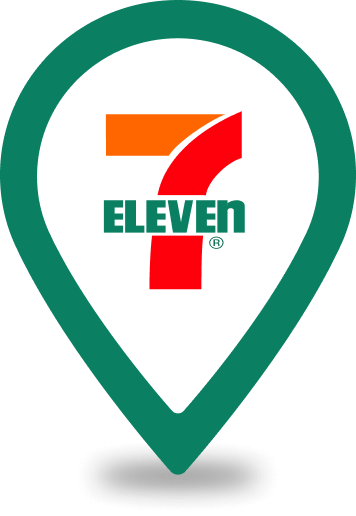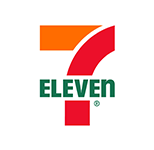Corporate History
1982

Philippine Seven Corporation (PSC) is established and signs its master license to operate 7-Eleven stores in the country.
1984
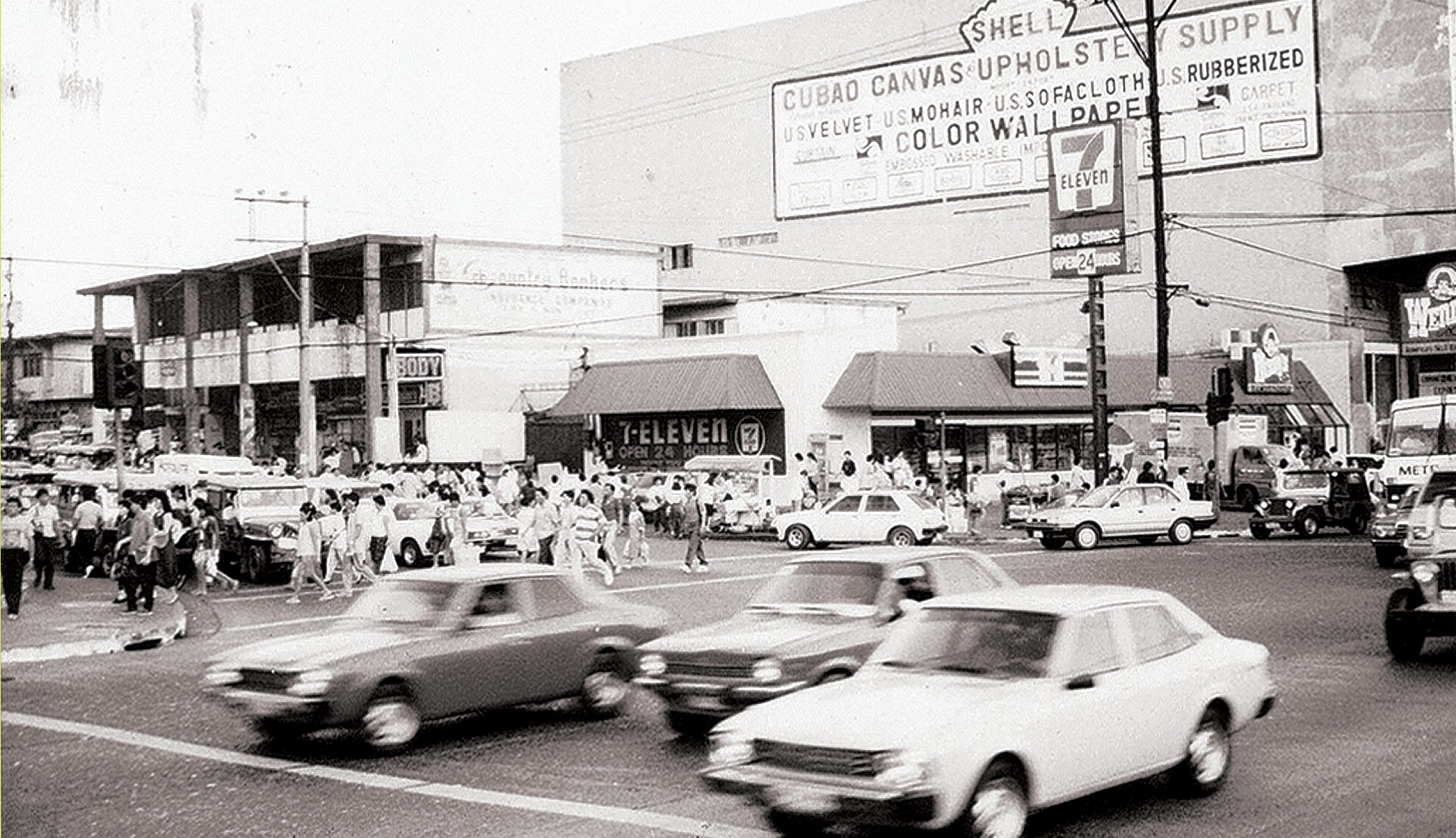
The first 7-Eleven store opens at EDSA corner Kamias St., Quezon City.
1989
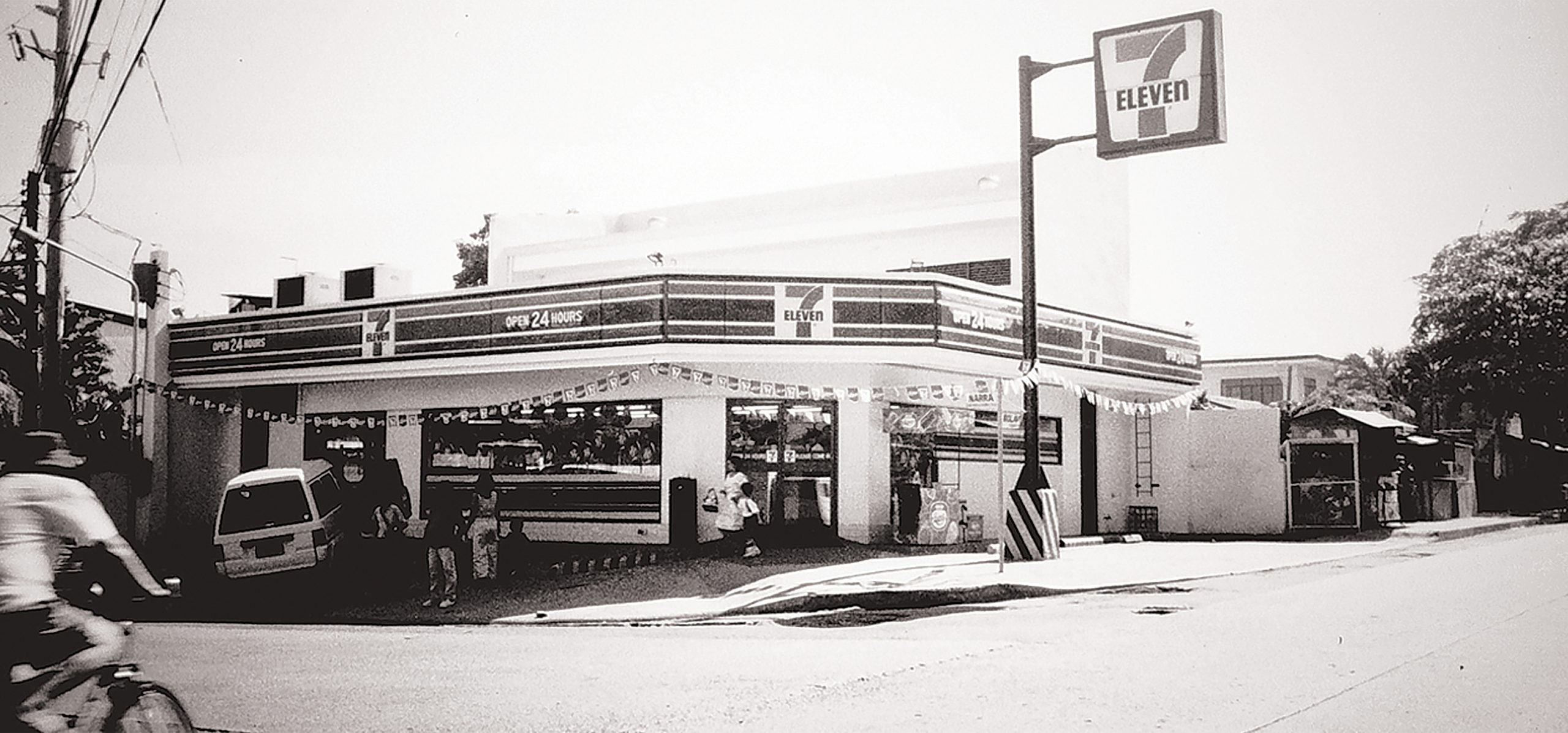
This year marks the first year PSC turns a profit with a total of 9 stores in operation.
1998
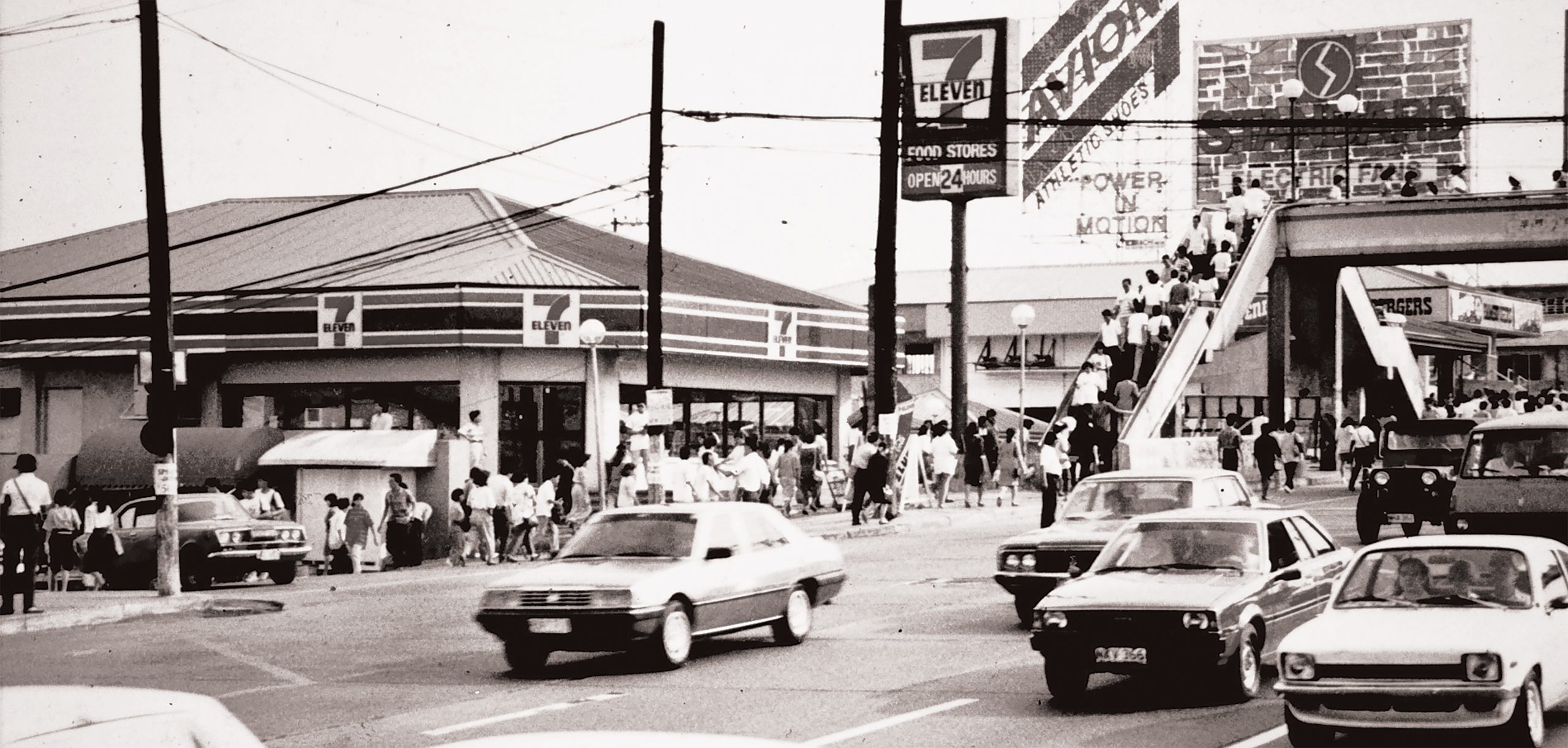
PSC, now with over 100 stores, launches its initial public offering, with shares offered at PHP 4.40.
1998
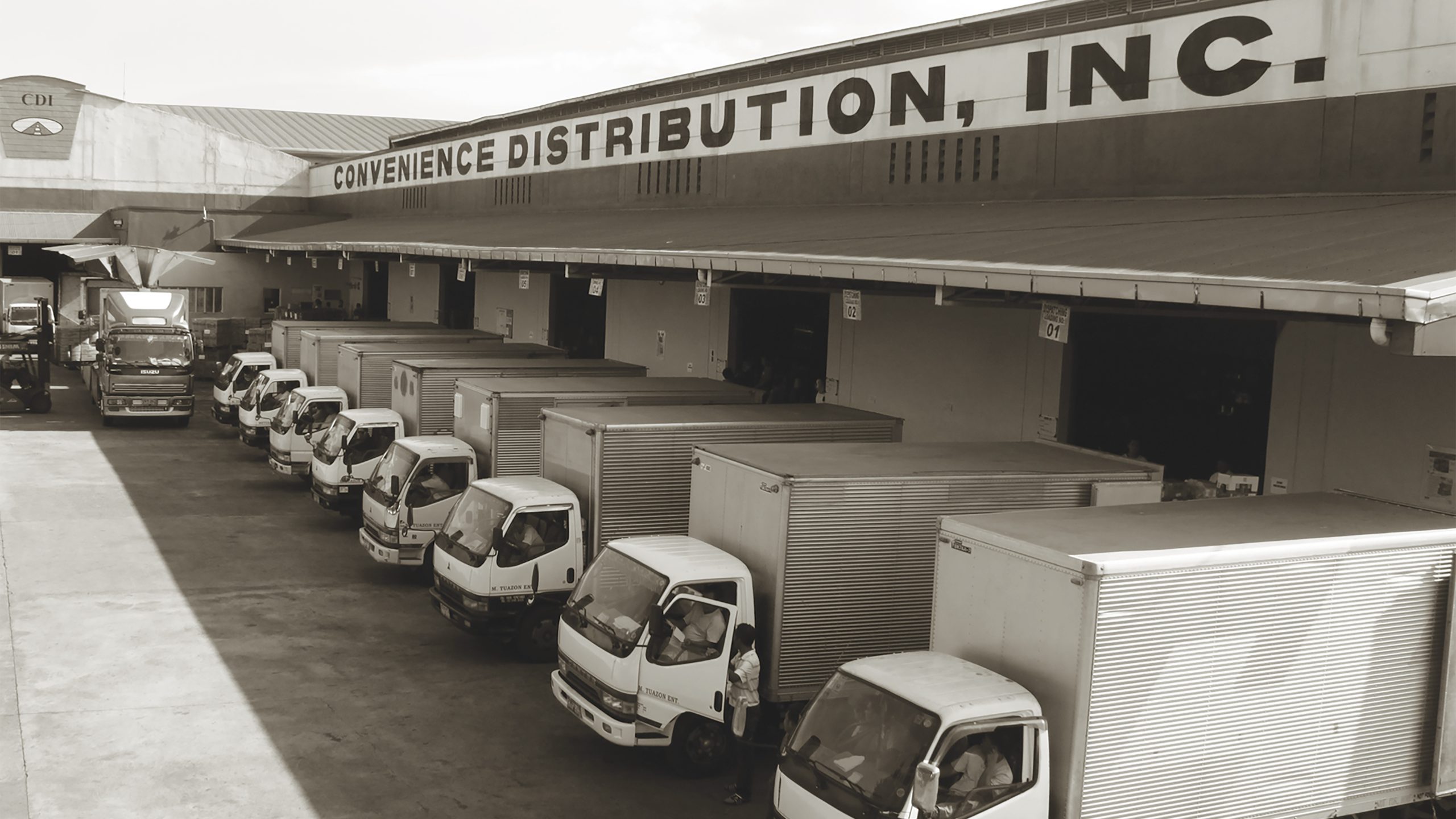
PSC's wholly owned subsidiary, Convenience Distribution, Inc. (CDI), is opened to provide centralized warehouse and distribution system to service its 7-Eleven's stores.
2000

President Chain Store Corp. (PCSC) purchases 50.4% of PSC's common shares at PHP 8.30 per share, which helped strengthen the company and enabled it to pursue its store expansion plans.
2005

PSC launches full scale franchising and ends the year with 85 franchise stores out of over 200 stores.
2007
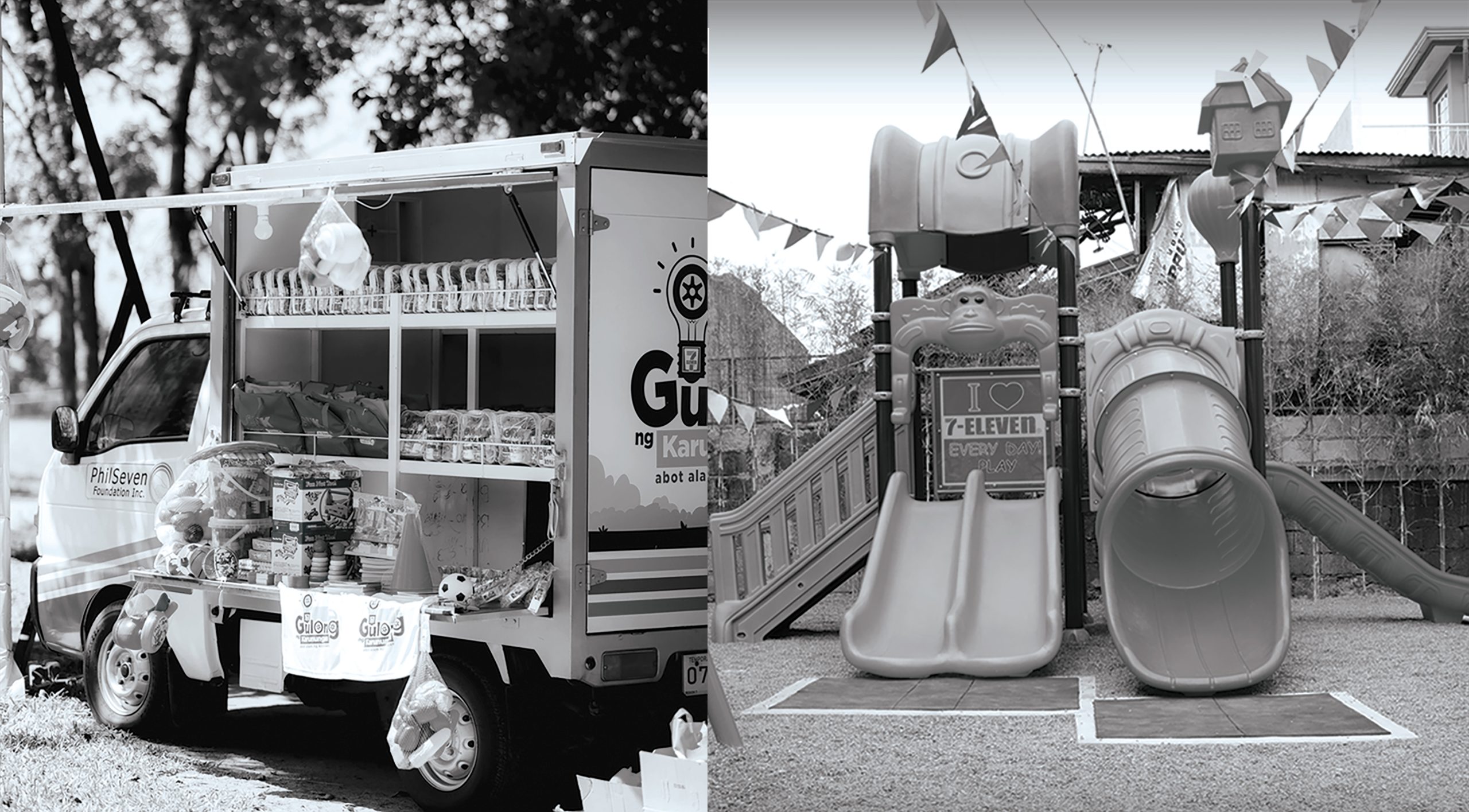
PSC's board of directors established PhilSeven Foundation Inc., the company's corporate social responsibility arm.
2012
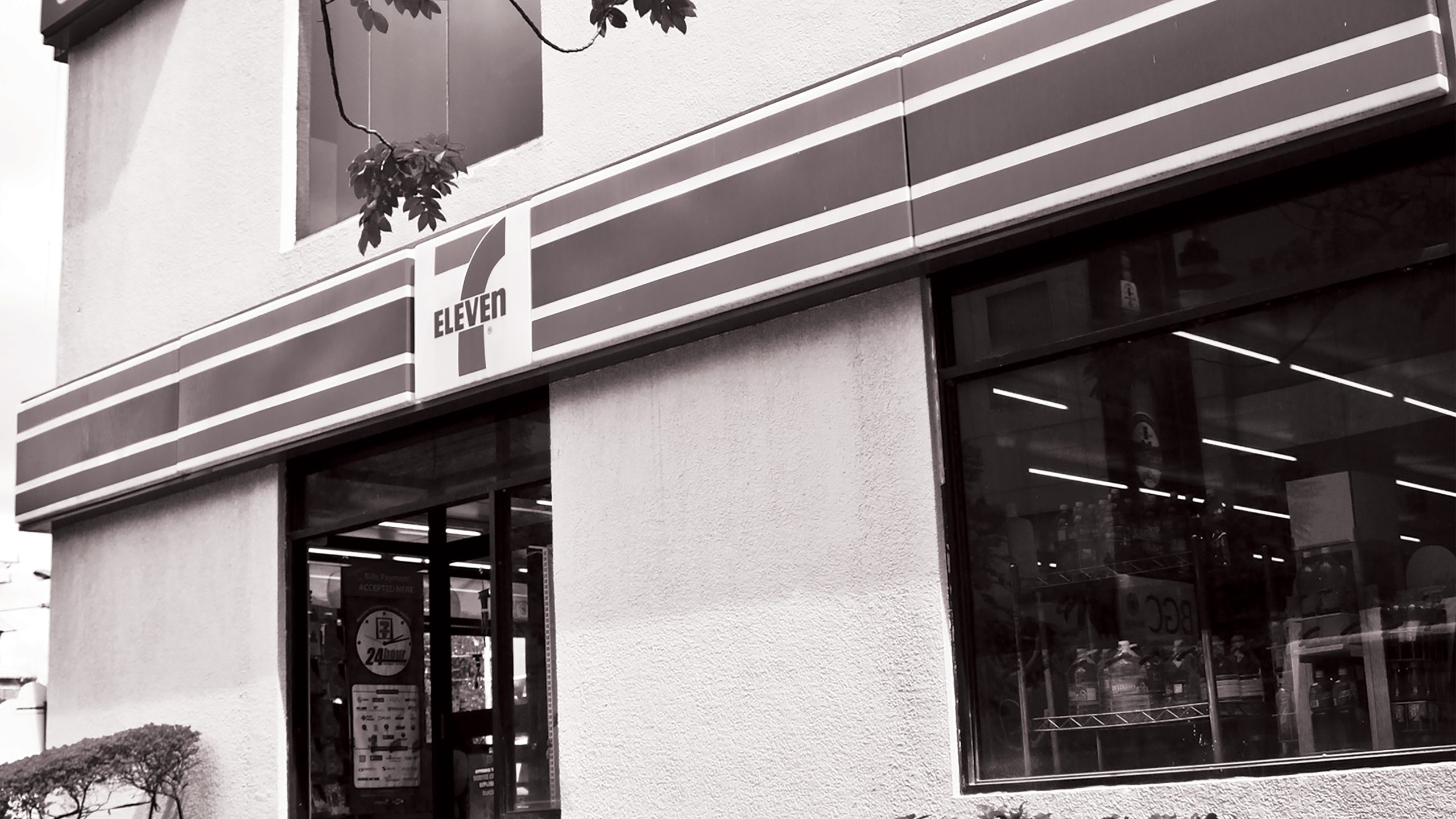
PSC opens its 711th store in the country.
2012

7-Eleven expands beyond Luzon & crosses over into Cebu, the Queen City of the South.
2013

Expansion continues in Visayas as 7-Eleven opens in Bacolod, the City of Smiles.
2013

PSC celebrates a major milestone as it opens 1000th store at Greenfield District, Mandaluyong City.
2013

The 7-Eleven Run took place at Filinvest City, Parañaque, featuring multiple race categories and widespread community participation.
2014

The 7-Eleven Trail race is the Philippines' largest annual MTB event held at Timberland Heights, San Mateo, Rizal attracting 1,500 to 2,000 riders each year. It's more than a race, it's a true test of skill and endurance on a course built by riders, for riders.
2014
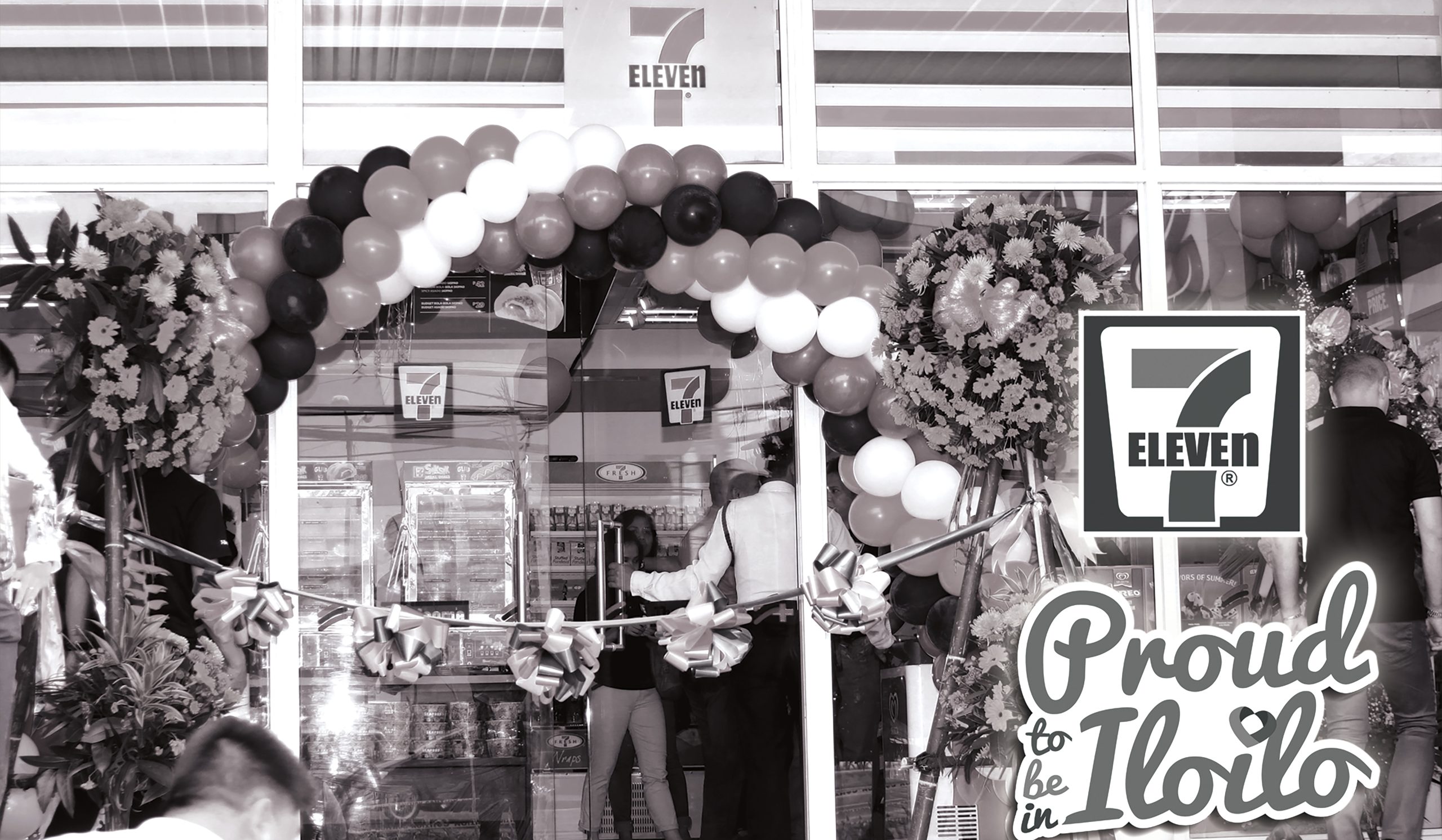
PSC continues its aggressive expansion plans in the Visayas region by opening six 7-Eleven stores in Iloilo City, the City of Love.
2015
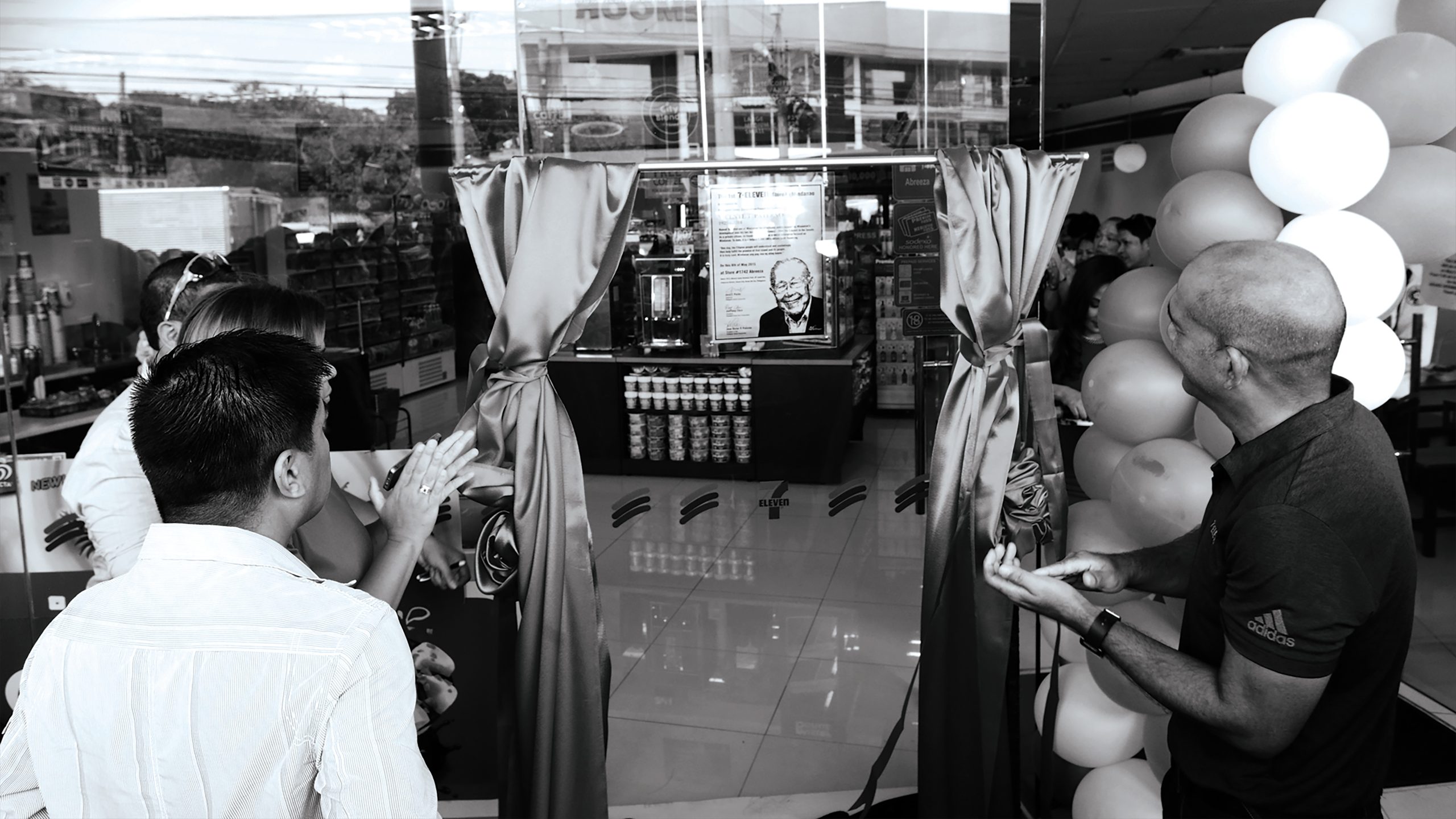
7-Eleven goes nationwide and lands on Davao's shores on May 8, 2015 with its first Mindanao store dedicated to late chairman Vicente T. Paterno.
2016
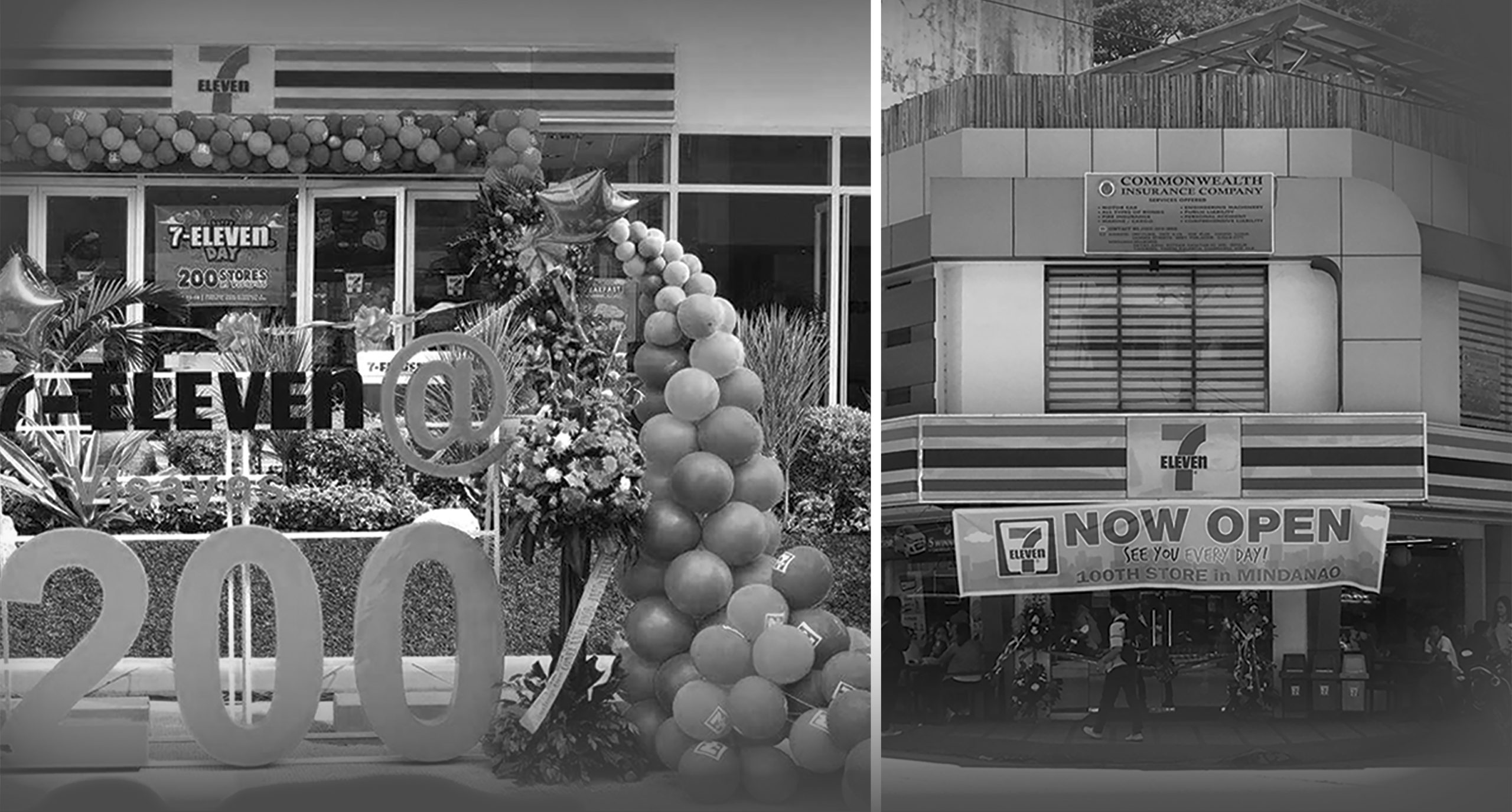
The 200th store in Visayas opened on July 11, 2026 at Mandaue City, Cebu and the 100th store in Mindanao opened on December 6, 2016 at Iligan City, Lanao Del Norte.
2017
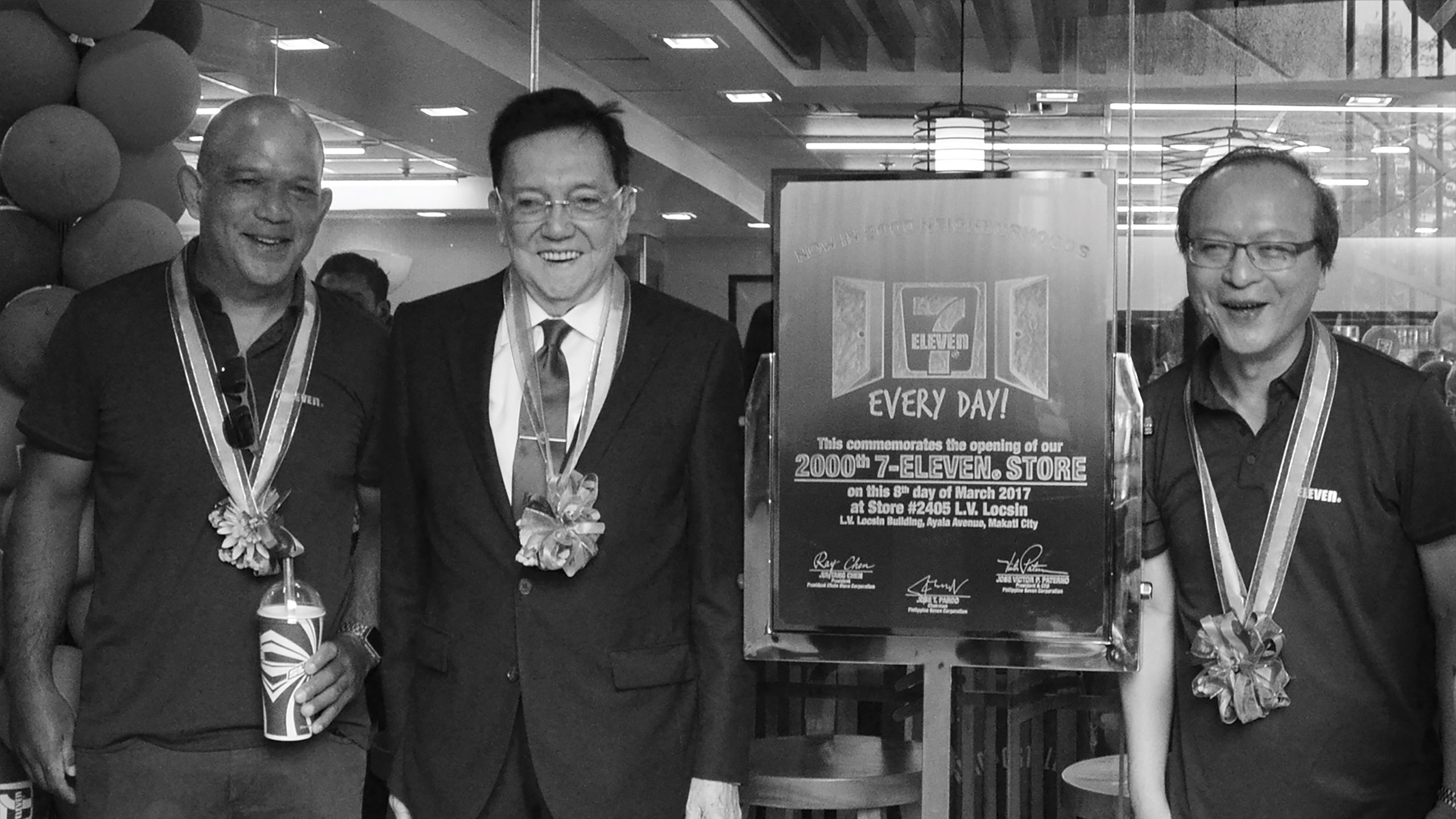
The 2000th store opened its doors on March 8, 2017 at the L.V. Locsin Building, 6752 Makati Avenue, Legazpi Village, Makati City.
2021
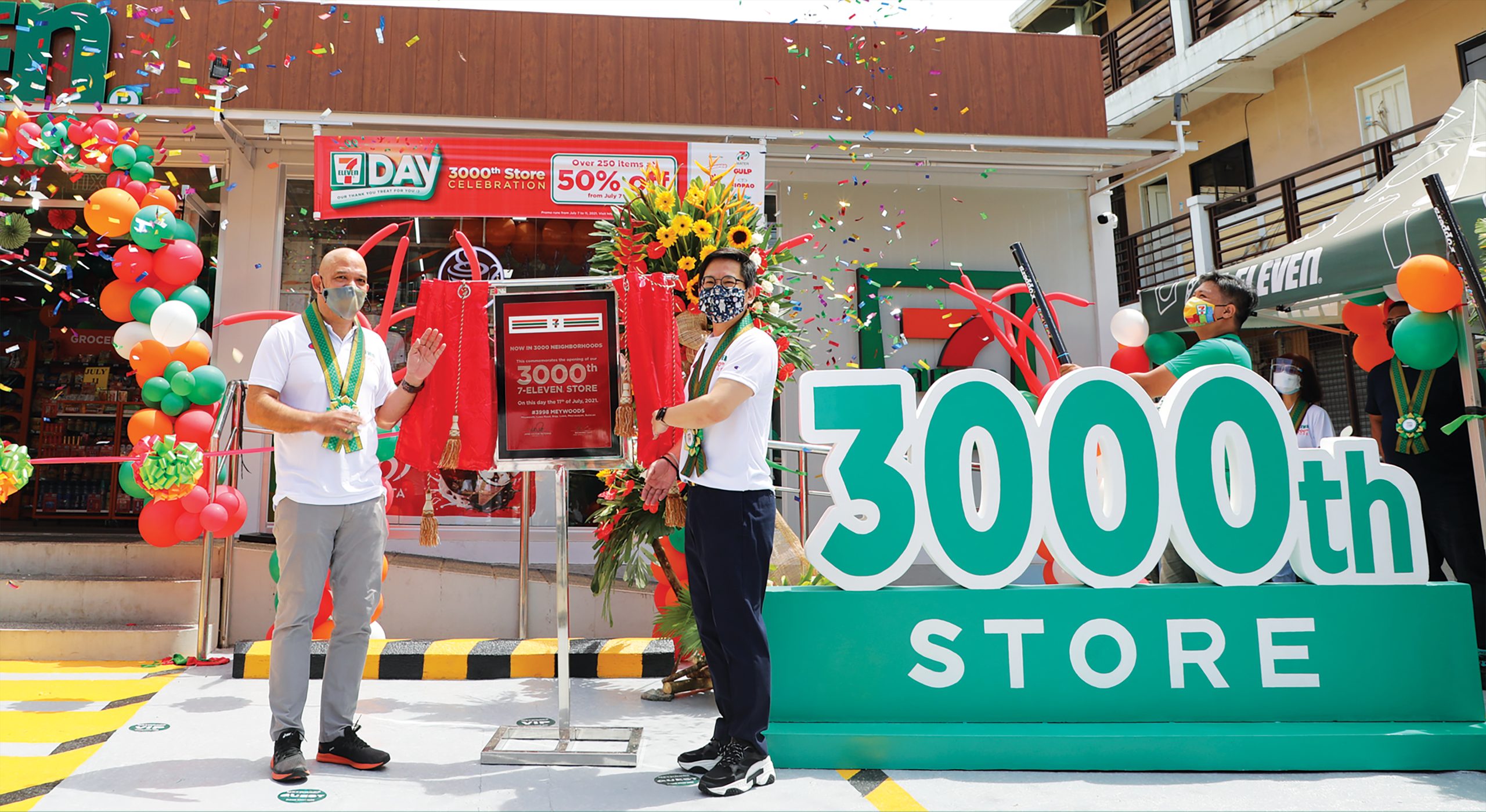
The 3000th store is opened in Meywoods, Lawa Road, Brgy. Lawa, Meycauayan, Bulacan.
2021
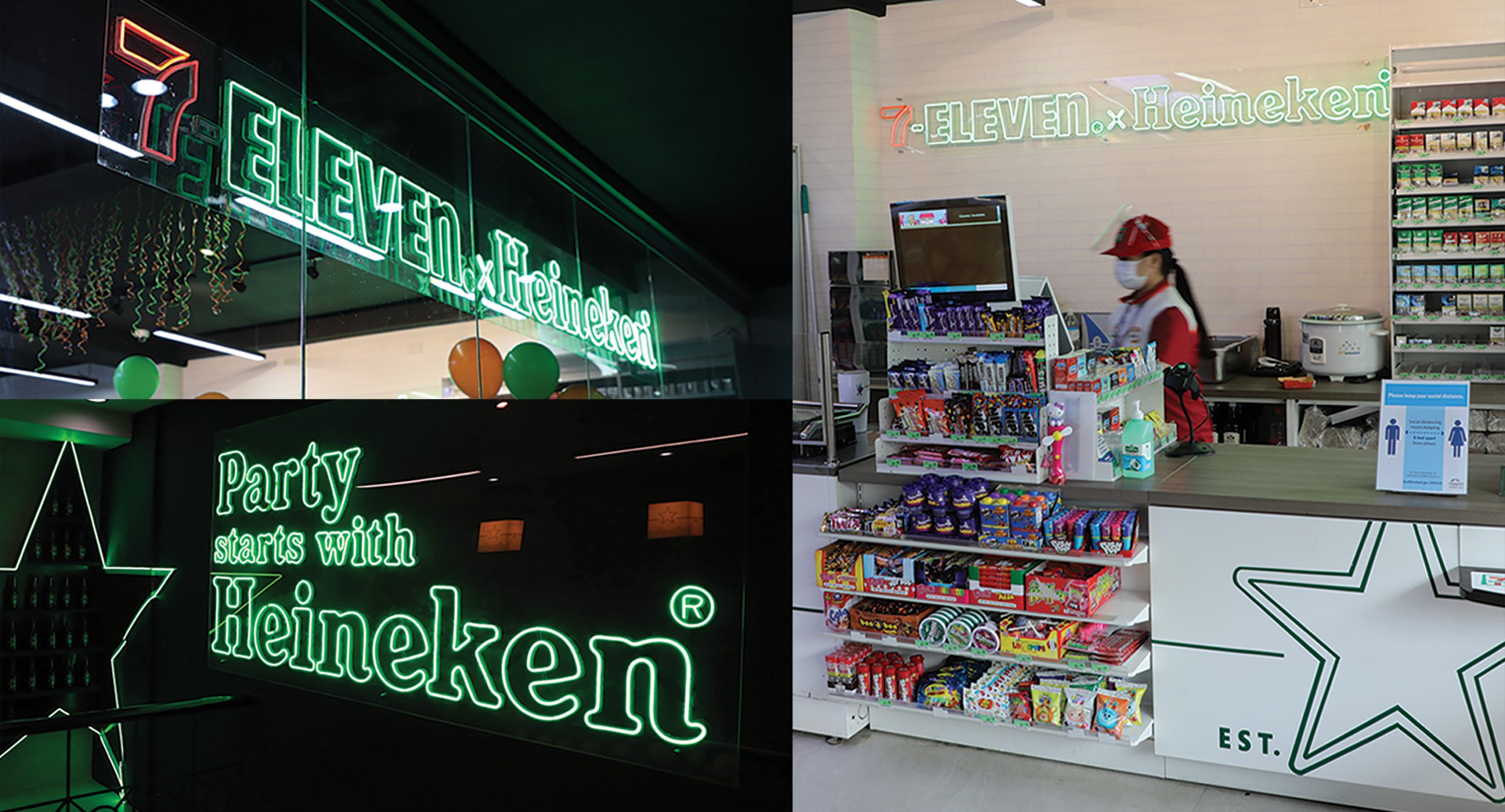
The 7-Eleven X Heineken concept store is opened at Tomas Morato, Quezon City
2021
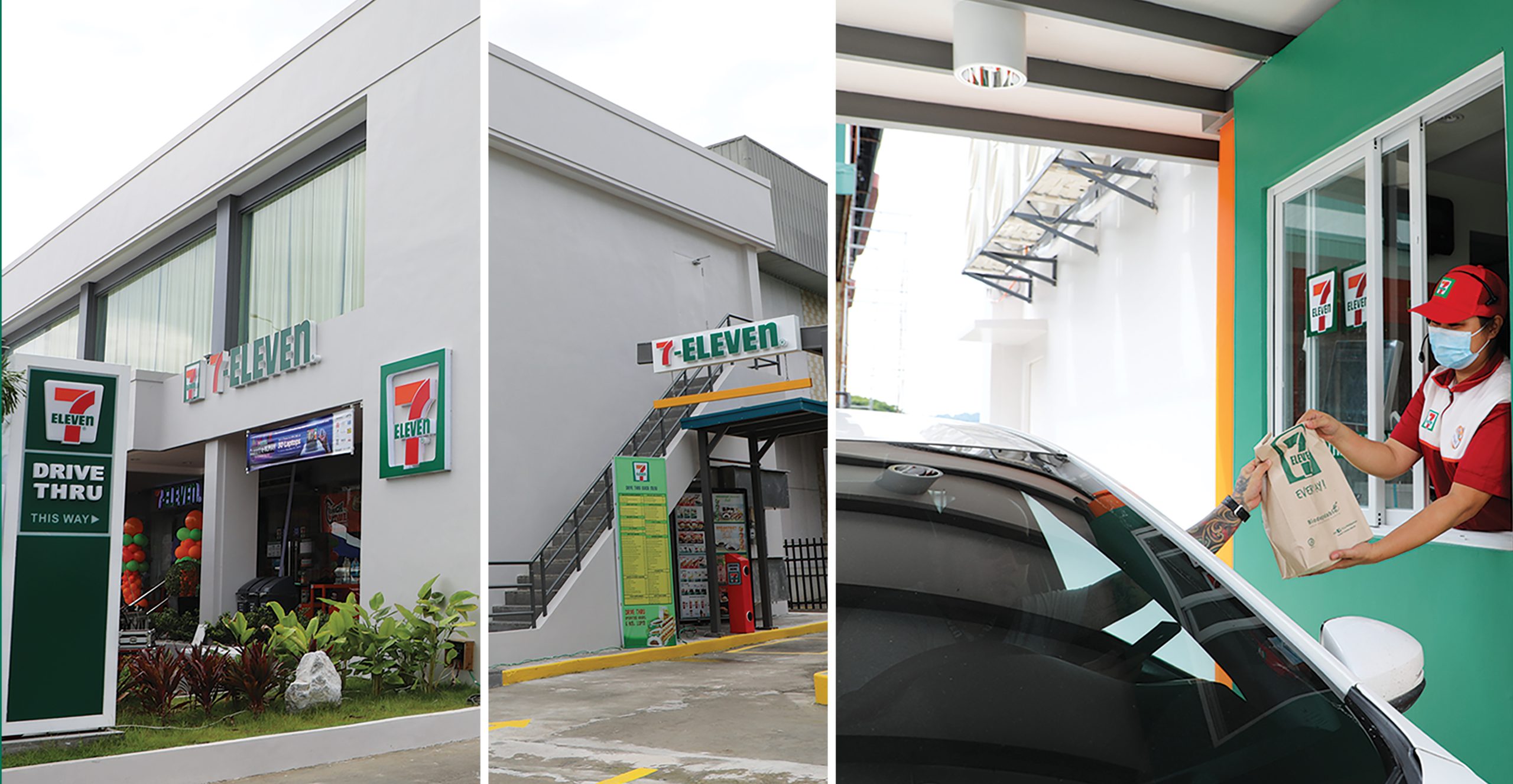
1st 7-Eleven drive thru store in the Philippines is opened at Lot 29B Subic Bay Gateway Park, Olongapo City.
2021
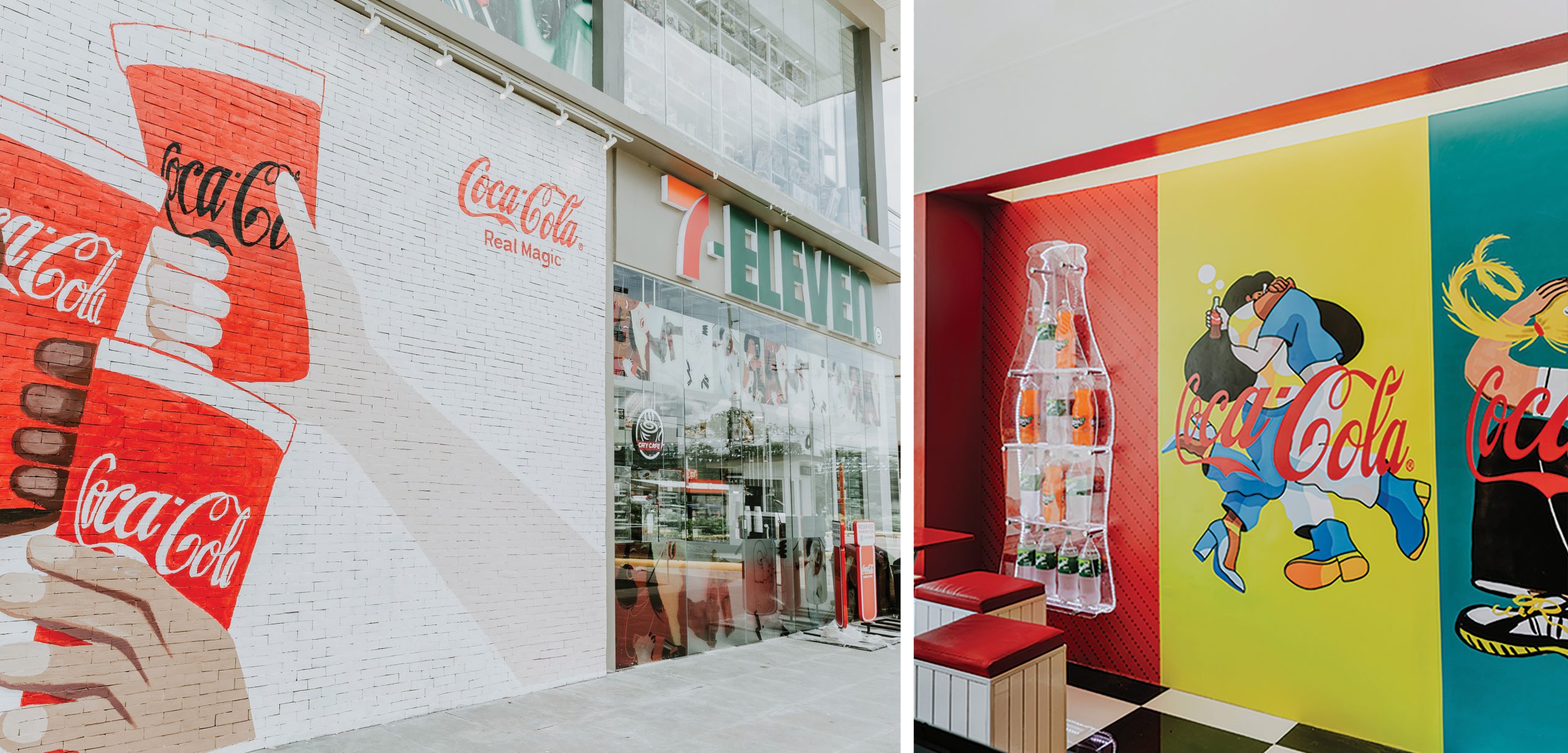
7-Eleven X Coca-Cola concept store is opened at LG Garden Walk, Circumferential Road, Mactan, Lapu-Lapu City, Cebu
2023
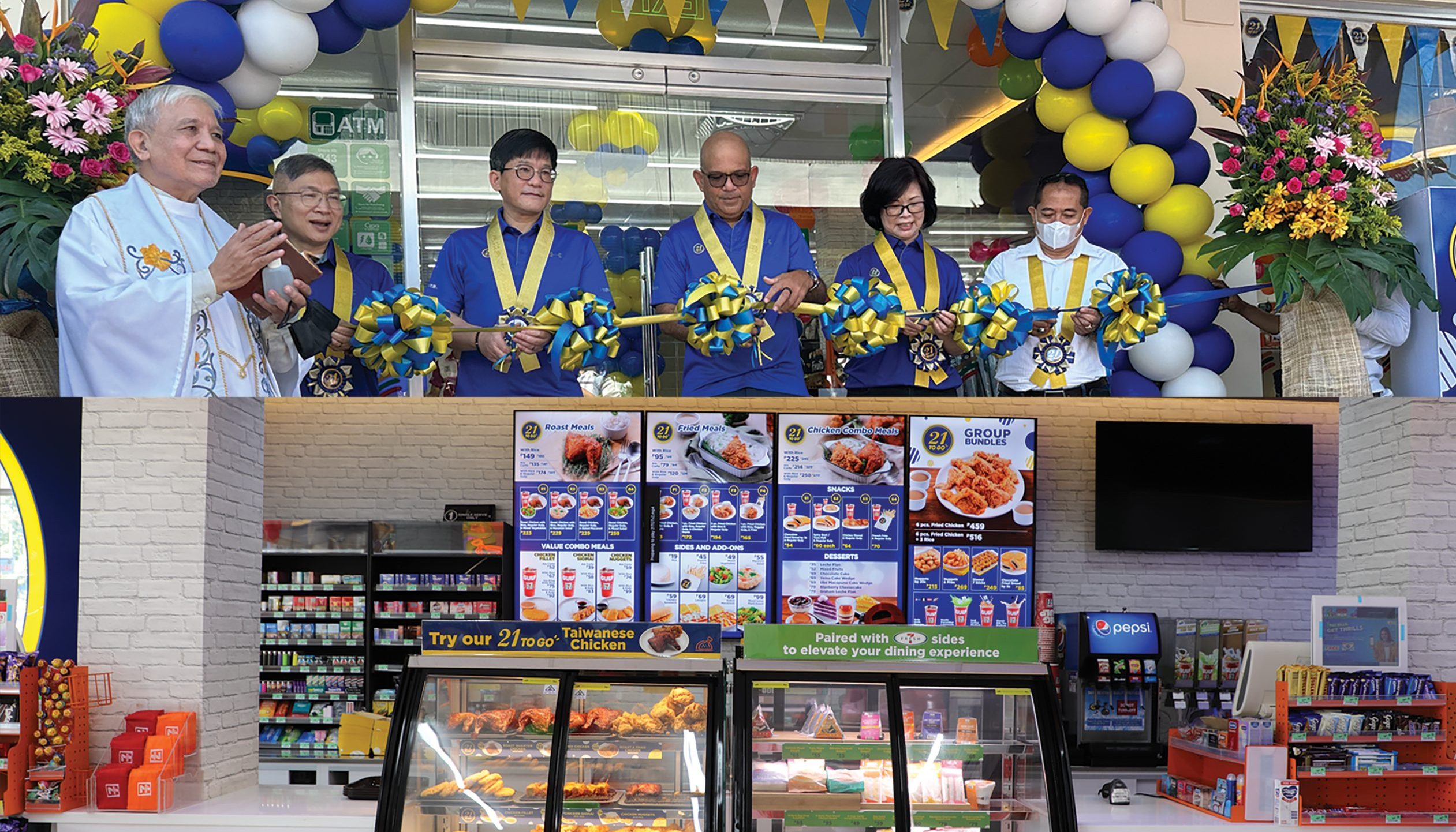
7-Eleven X 21TOGO concept store opens at Moreland Bldg., Merville Access Rd. Cor. West Service Rd., Parañaque City.
2023
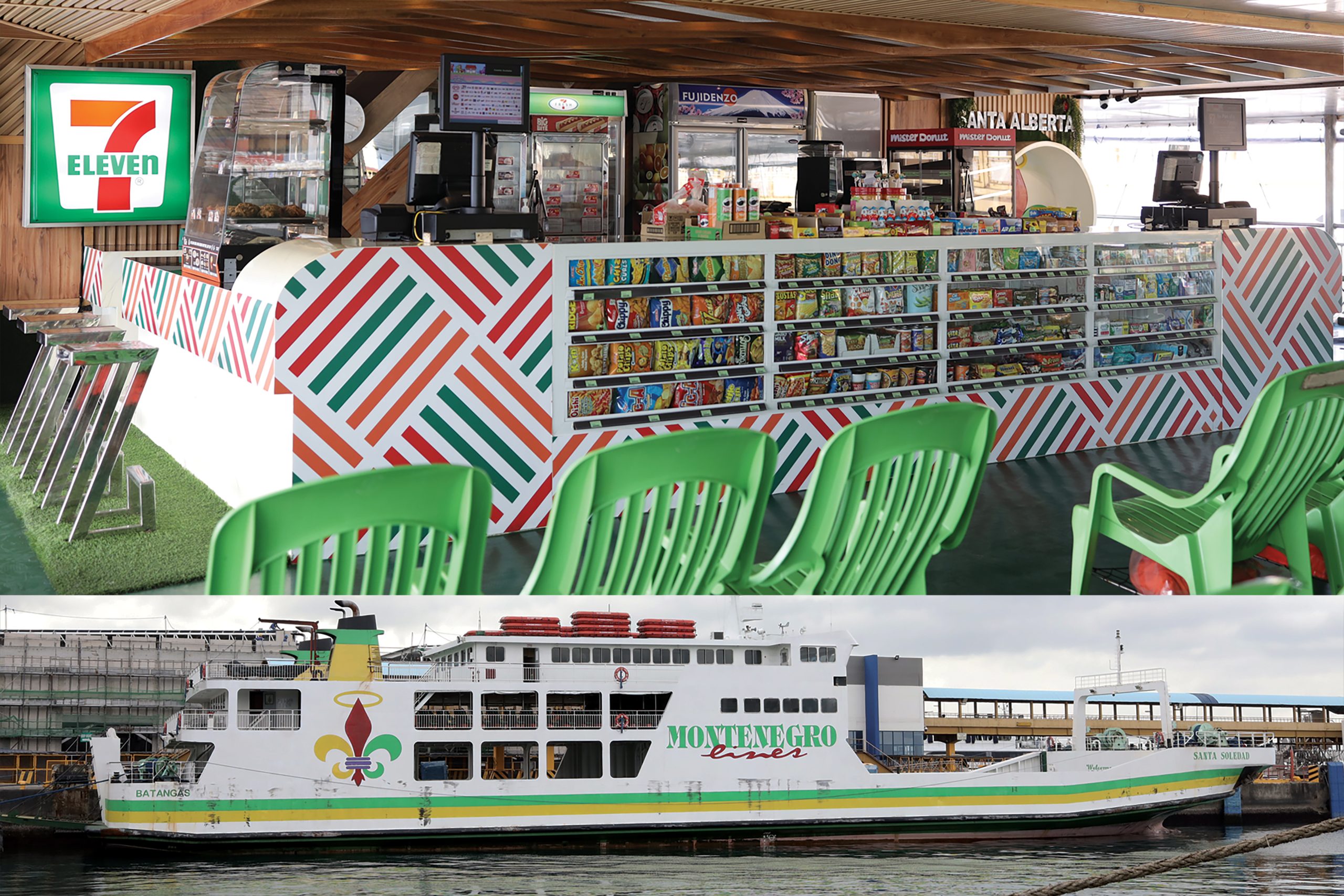
7-Eleven Montenegro Lines is the first 7-Eleven store established within a ferryboat.
2023
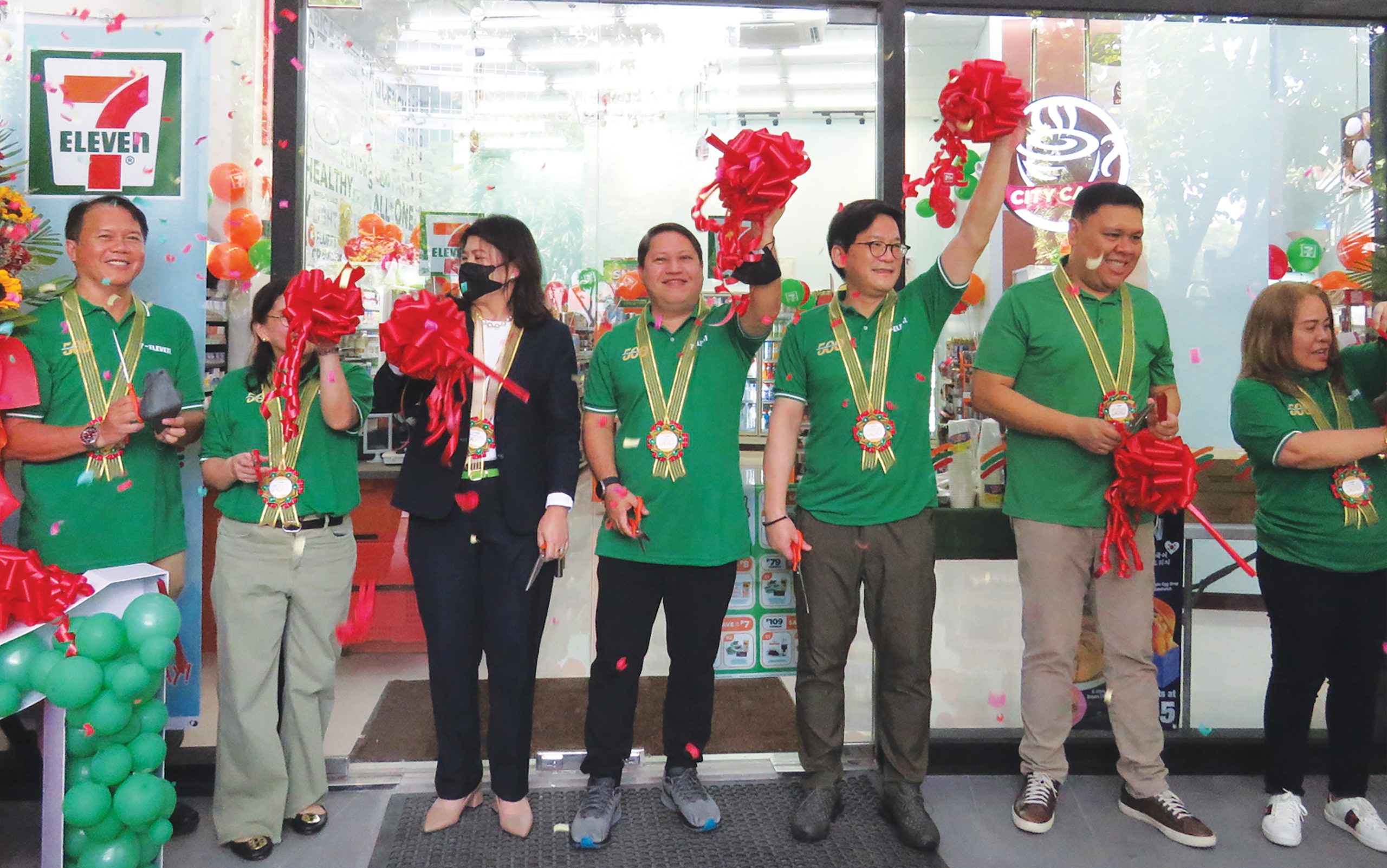
The 500th store in Visayas opens at Hop Inn Cebu, Samar Loop Street, Ayala Business Park, Cebu City.
2024
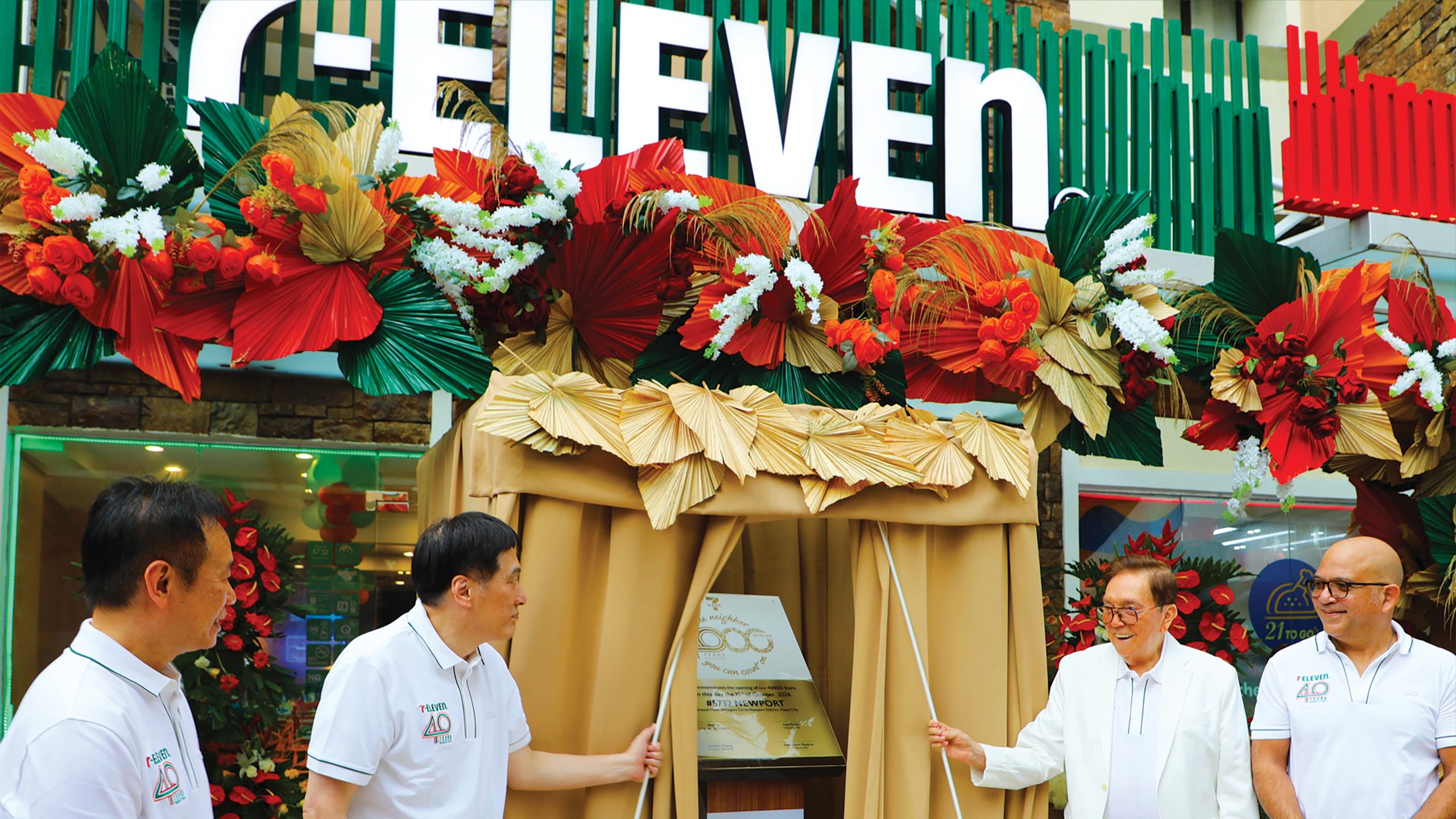
PSC celebrates 40 years in the Philippines along with the opening of the 4000th store at Ground Floor, Newport Circle, Newport District, Pasay City.
2025
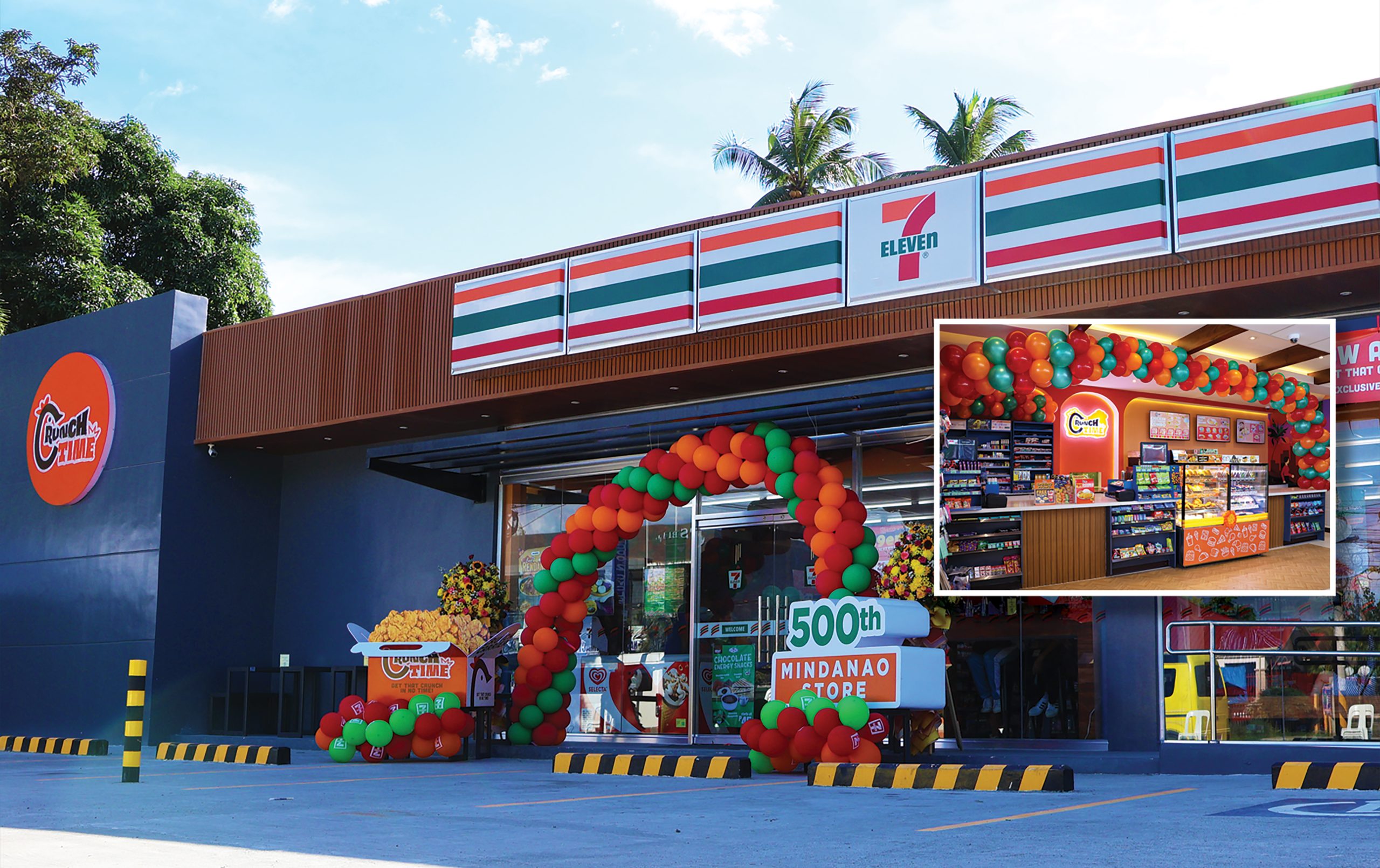
The 500th store in Mindanao opens at Apokon Road, Brgy. Apokon, Tagum City, Davao Del Norte.
Philippine Seven Corporation (“PSC”) was registered with the Securities and Exchange Commission (“SEC”) on November 23, 1982. It acquired from Southland Corporation (which became 7-Eleven, Inc. or “SEI” in 1991, and now 7-Eleven International, LLC (“7IN”) of Dallas, Texas the license to operate 7-Eleven stores in the Philippines on December 13, 1982. Operations commenced with the opening of its first store on February 29, 1984, at the corner of Kamias Road and EDSA Quezon City, Metro Manila. Considering the country’s economic condition at that time, the Company grew slowly in its first few years of existence.
On July 28, 1988, PSC transferred the Philippine area license to operate 7-Eleven stores to its affiliate, Phil-Seven Properties Corporation (“PSPC”), together with some of its store properties. In exchange thereof, PSC received 47% of PSPC stock as payment. Concurrent with the transfer, PSC entered into a sublicensing agreement with PSPC to operate 7-Eleven stores in Metro Manila and its suburbs. As part of PSPC’s main business, it acquired or leased commercial properties and constructed retail store buildings, leasing the buildings to PSC long-term together with most of the capital equipment used for store operations. In effect, PSC concentrated on managing its stores and effectively took the role of a pure retailer.
On May 2, 1996, the stockholders of both PSC and PSPC approved the merger of the two companies to advance PSC group’s expansion. On October 30, 1996, SEC approved the merger and PSPC was then absorbed by PSC as the surviving entity. With the consolidation of the respective lines of business of PSC and PSPC, PSC’s retailing strengths were complemented by PSPC’s property and franchise holdings. Their management as a single entity enhanced operational efficiency and strengthened their ability to raise capital for growth. PSC listed its shares (SEVN) on the Philippine Stock Exchange and had its initial public offering on February 04, 1998. The shares were offered at the price of P4.40 per share from its par value of P1.00 per share. On September 17, 1998, PSC established Convenience Distribution Inc. (“CDI”), a wholly owned subsidiary, to provide logistics planning and services to its 7-Eleven stores.
With the effectivity of the Retail Trade Liberalization Act (“RTLA” under R.A. 8762) on March 25, 2000, foreign entities were allowed to invest in an existing retail company subject to the requirements of the law. President Chain Store (Labuan) Holdings, Ltd. (PCSL), a Malaysian investment holding company, purchased 119,575,008 common shares of PSC or 50.4% of PSC’s outstanding capital stock at the price of P8.30 per share. The purchase was made under a tender offer from October 9 to November 7, 2000. PCSL is affiliated with President Chain Store Corporation, which is also the 7-Eleven licensee in Taiwan. This provided a source for technical support to strengthen PSC’s organizational structure and operating systems and pursue store expansion plans. A new affiliate, Store Sites Holding, Inc., was also established on November 9, 2000, as the entity to own land properties. These land properties are leased to PSC by SSHI. The RTLA or R.A. 8762 of Y2000, was amended by R.A. 11595 on December 10, 2021, lowering the minimum paid up capital for foreign retailers to engage in retail to Php 25 million. However, PSC continues to maintain its net worth and capitalization above USD 2.5 million equivalent in Philippine peso up to the present even with the lower capital requirement.
PSC’s area license to operate 7-Eleven Stores in the Philippines was renewed on August 31, 2007, for another term of 20 years, automatically renewable for each term of 10 years upon completion of renewal conditions. The Renewal Area License Agreement has been approved by and registered with the Intellectual Property Office as of September 25, 2007.
To support its corporate social responsibility programs, PSC initiated the establishment of PhilSeven Foundation, Inc. (PFI) on October 2, 2007. PFI’s DSWD Certificate of Registration was renewed in March 2025, and its License to Operate was issued on March 4, 2025, valid for another three years until March 4, 2028. Following this, PFI’s BIR Certificate of Registration as a donee institution was also renewed for another three years, extending its validity until 2028. Additionally, PFI is a member of the League of Corporate Foundations, Inc.
PSC is a registered Operator of Payment Systems (OPS), after it was granted a provisional certificate by the Bangko Sentral ng Pilipinas (BSP), the latter issued a certificate of registration to PSC as an OPS, classified as a non-bank financial institution (NBFI), on May 17, 2020. On May 15, 2024, PS surrendered to BSP its Money Service Business (MSB) registration as a Remittance Transfer Company (RTC) with a Type “A” Remittance Agent registration.
As of December 31, 2024, the Company has a total of 5,658 direct hires and augments its temporary needs during peak hours or season in the stores and the support services units with cooperative members. There is no existing labor union in the company and collective bargaining agreement. There is a PSC Employees’ Council which communicates to management the employees’ concerns and works together with management on programs for employee welfare, work-life balance and skills development. There has been no strike or threat to strike from the employees for the past three years.
The Company provides supplemental benefits or incentives to its employees such as retirement benefit plan, health card, group life and accident insurance plan. Various employee programs and recognition of top performing employees were also provided like the Notable Outstanding Work (NOW), Managers of Tomorrow (MOT), The Outstanding Employee of the Year (TOEY) Awards, and service awards among others, to acknowledge and celebrate employees’ achievements.
Recognizing the need of employees for growth, training and development programs are regularly provided by PSC across all levels. For Senior Management and Officers, the company conducts an annual Leadership Summit wherein learning sessions are related to company goals and current situation. Leadership Academy for career pathing and succession planning is also in place to ensure business continuity and leadership. In-house training sessions on other leadership skills, products, basic negotiation, change management, data management, and basic operating and quality assurance (QA) procedures are also provided by the Company to employees. These are offered periodically based on an annual training calendar every month or quarterly. These are designed to augment and develop the employees’ skills and competencies. A learning management system (LMS) is also optimized for other modules that would support employees’ upskilling/reskilling depending on their level.
The top risks in the retail industry to which PSC belongs include increase in competition, brand reputation, and business operations/supply chain continuity. Meanwhile, the main risks arising from PSC’s financial instruments are credit risk, liquidity risk, interest rate risk, and foreign exchange risk.
PSC continually observes the activities of competitors in the relevant market, which operate in various retail formats, all selling typical products and services for c-stores (branded foreign/ local or generic), mini-marts, gas marts, drugstore-marts, groceries, supermarkets (including their express or junior or smaller formats), and other hybrid or small stores (the general CVS industry). As for its market share against leading c-stores in the country with an estimated count of 4,770, it is at 86.58%. This share is a subset from the total number of similar formats grouped together (branded or generic) as c-stores, mini-marts, and small format grocery stores.
